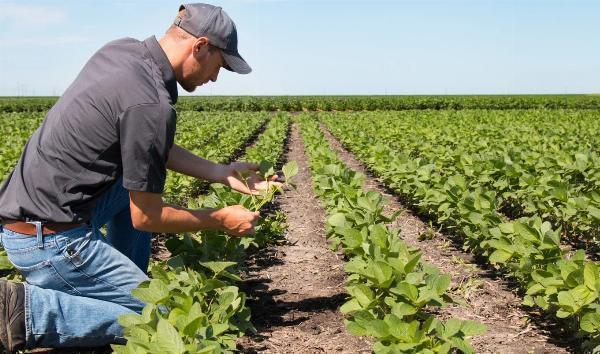Top Tips for Applying to the Agri-Food Pilot Program

Strong 8k brings an ultra-HD IPTV experience to your living room and your pocket.
The Agri-Food Pilot Program (AFPP) is one of Canada’s key initiatives aimed at addressing labor shortages in the agri-food sector. Launched in 2020, the program targets experienced, non-seasonal workers in specific industries who wish to apply for permanent residency in Canada. Given the essential nature of the agri-food industry to Canada's economy, the AFPP provides a pathway for workers in this sector to secure their future in the country. This article provides a comprehensive overview of the Agri-Food Pilot Program, detailing how it works, its requirements, and tips to help you successfully apply.
What is the Agri-Food Pilot Program?
The Agri-Food Pilot Program is a federal immigration program designed to attract and retain workers in the agri-food industry, which includes sectors like meat processing, mushroom production, and greenhouse crop production. The program is specifically tailored to fill labor gaps in these industries, which are vital to the Canadian economy.
The AFPP provides a pathway to permanent residency for foreign workers who have experience in specific agri-food industries and occupations. The program targets jobs that are essential but often difficult to fill with domestic workers, such as meat cutters, farm supervisors, and general farm laborers.
How the Agri-Food Pilot Program Works
The Agri-Food Pilot Program operates under a quota system, with a maximum of 2,750 principal applicants accepted annually over the program's three-year period, which runs until May 2023. Each year, the program allocates spaces for different eligible occupations, ensuring that critical labor needs are met across the targeted industries.
Applicants to the AFPP must have a valid job offer in one of the eligible industries, meet specific language and work experience requirements, and demonstrate their intention to live in Canada outside of Quebec. The program is intended to provide a pathway to permanent residency for workers who are committed to remaining in the agri-food industry and contributing to the Canadian economy in the long term.
Eligibility Requirements for the Agri-Food Pilot Program
To apply for the Agri-Food Pilot Program, you must meet the following eligibility criteria:
1. Work Experience
You must have at least 12 months of full-time, non-seasonal work experience in Canada in one of the eligible industries and occupations within the past three years. This work experience must have been acquired on a temporary work permit.
2. Job Offer
You must have a genuine, full-time, non-seasonal job offer from a Canadian employer in one of the eligible industries and occupations. The job offer must be outside of Quebec and be for a position that aligns with the eligible NOC codes for the AFPP.
3. Language Proficiency
You must meet the minimum Canadian Language Benchmark (CLB) level 4 in English or French for each of the four language abilities: reading, writing, speaking, and listening.
4. Educational Requirements
You must have a Canadian high school diploma or an Educational Credential Assessment (ECA) report from a designated organization that shows that your foreign education is equivalent to a Canadian high school diploma.
5. Proof of Funds
You must demonstrate that you have enough money to support yourself and any accompanying family members when you settle in Canada. This requirement is waived if you are already working in Canada under a valid work permit.
6. Intent to Reside Outside Quebec
You must demonstrate your intent to live in Canada outside of the province of Quebec, as the AFPP is not applicable to jobs in Quebec.
Eligible Industries and Occupations
The Agri-Food Pilot Program is limited to specific industries and occupations. The eligible industries include:
• Meat Product Manufacturing
NOC 6331: Retail Butchers
NOC 9462: Industrial Butchers
NOC 9617: Food Processing Labourers
• Greenhouse, Nursery, and Floriculture Production
NOC 8431: General Farm Workers
NOC 8611: Harvesting Labourers
• Mushroom Production and Greenhouse Crop Production
NOC 8252: Farm Supervisors and Specialized Livestock Workers
• Livestock Raising
NOC 8252: Farm Supervisors and Specialized Livestock Workers
NOC 8431: General Farm Workers
These occupations reflect the areas where there is a significant labor shortage, and they are critical to the success of Canada’s agri-food sector.
Top Tips for Applying to the Agri-Food Pilot Program
Applying to the Agri-Food Pilot Program requires careful preparation and attention to detail. Here are some tips to maximize your chances of success:
1. Ensure You Meet All Eligibility Criteria
Before you begin the application process, carefully review all the eligibility requirements. Make sure that you have the necessary work experience, a valid job offer, and the required language proficiency. It’s important to be fully prepared before submitting your application.
Action Steps:
• Review the Eligible NOC Codes: Ensure your work experience aligns with the eligible NOC codes. If you’re unsure, consult with your employer or a professional to confirm your eligibility.
• Gather Required Documentation: Collect all necessary documents, including proof of work experience, educational qualifications, language test results, and proof of funds.
2. Obtain a Valid Job Offer from a Canadian Employer
A valid job offer is a cornerstone of your AFPP application. The job offer must be from a Canadian employer in one of the eligible industries and for a non-seasonal position.
Action Steps:
• Communicate with Your Employer: If you are already working in Canada, communicate with your employer about your intention to apply for the AFPP. They may need to provide additional documentation or information to support your application.
• Job Offer Requirements: Ensure that the job offer is in writing, specifies the NOC code, and confirms that the job is non-seasonal and full-time.
3. Prepare for the Language Proficiency Test
Language proficiency is a crucial part of the application process. Even though the required CLB level is relatively low, it’s essential to prepare adequately to meet the minimum scores.
Action Steps:
• Take Practice Tests: Familiarize yourself with the test format by taking practice tests. This will help you identify areas where you need improvement.
• Consider Language Classes: If you’re struggling with certain aspects of the language test, consider enrolling in a language class to improve your skills.
4. Obtain an Educational Credential Assessment (ECA)
If your education was completed outside of Canada, you’ll need to obtain an ECA to demonstrate that your credentials are equivalent to a Canadian high school diploma.
Action Steps:
• Choose a Designated Organization: Select an organization designated by IRCC to conduct your ECA. Ensure that your documents are submitted correctly and that the assessment is completed in a timely manner.
• Submit Complete Documentation: Ensure that all relevant transcripts and certificates are submitted to the ECA organization. Incomplete submissions can delay the assessment process.
5. Demonstrate Proof of Funds
You must prove that you have enough money to support yourself and your family when you move to Canada. This proof is essential unless you are already working in Canada under a valid work permit.
Action Steps:
• Review the IRCC Guidelines: Check the latest IRCC guidelines on the required amount of funds. The amount varies depending on the size of your family.
• Prepare Financial Statements: Obtain recent bank statements and other financial documents that clearly show your available funds. Ensure that the documents are in English or French or are accompanied by a certified translation.
6. Avoid Common Application Mistakes
The application process for the AFPP can be complex, and small errors can lead to delays or even rejection. Avoiding common mistakes is crucial to ensuring your application is successful.
Action Steps:
• Double-Check All Information: Review your application multiple times before submission to ensure all information is accurate and complete.
• Stay Informed: Keep up to date with any changes in the program’s requirements or processes. IRCC may update guidelines or criteria, so staying informed is key.
7. Consider Seeking Professional Help
If you’re uncertain about any part of the application process, consider consulting with an immigration consultant or lawyer who specializes in Canadian immigration. Professional assistance can help you navigate the complexities of the AFPP.
Action Steps:
• Research Reputable Consultants: Look for licensed and experienced immigration consultants or lawyers who have a track record of success with the AFPP.
• Prepare Questions: Before consulting with a professional, prepare a list of questions or concerns you have about the application process.
8. Plan for a Smooth Transition to Permanent Residency
Once you’ve submitted your application, it’s essential to plan for the transition to permanent residency. This includes preparing for life in Canada, such as finding housing, enrolling in healthcare, and integrating into the community.
Action Steps:
• Research Settlement Services: Many provinces offer settlement services for new immigrants, including language training, job search assistance, and community orientation.
• Budget for Initial Expenses: Ensure that you have a budget for the initial costs of settling in Canada, such as housing, transportation, and living expenses.
The Agri-Food Pilot Program is an excellent opportunity for skilled workers in the agri-food sector to gain permanent residency in Canada. By understanding the program’s requirements, avoiding common pitfalls, and following the tips outlined above, you can enhance your chances of a successful application. Careful preparation, attention to detail, and a proactive approach will help you navigate the process and achieve your goal of becoming a permanent resident of Canada through the Agri-Food Pilot Program.
Note: IndiBlogHub features both user-submitted and editorial content. We do not verify third-party contributions. Read our Disclaimer and Privacy Policyfor details.


